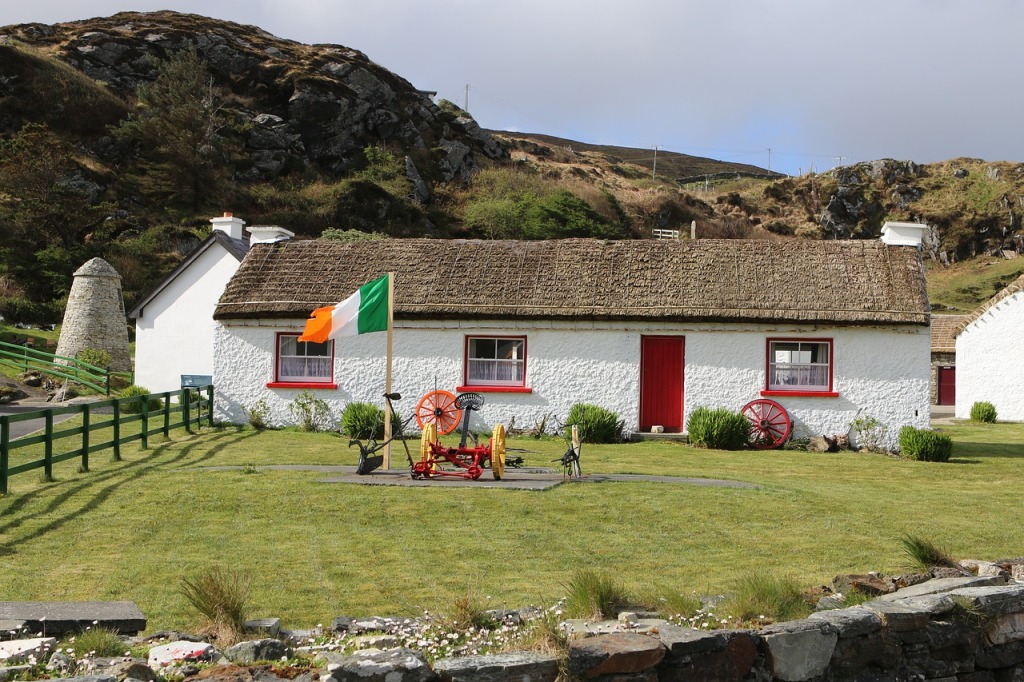I Found My Tribe
a memoir by Ruth Fitzmaurice
According to several definitions, a tribe is a group of people who share a common culture, linked by language, customs, traditions, geography, and often ancestry.
The author, Ruth Fitzmaurice, had two tribes that fit these descriptions. One was her family consisting of her filmmaker husband Simon and their five children. The other was her friends-specifically those friends who share a common culture- women whose husbands have serious chronic, disabling illnesses or injuries.
Her husband Simon Fitzmaurice developed motor neuron disease, called MND in the book. Besides Ireland (the Republic) they also lived in Australia and England before settling permanently in Greystones, Co. Wicklow, on the east coast of Ireland, on the Irish Sea.

Other Americans may be as ignorant about Irish geography as I am. They will recognize MND by another name, amyotrophic lateral sclerosis, ALS, the motor neuron disease that bears the name of a famous victim, American baseball player Lou Gehrig. English theoretical physicist Stephen Hawking is almost as well known for his motor neuron disease as he was for his scientific achievements.
I have personally known three people who were afflicted with this disease so was a first-hand witness to the devastation it causes to the person as well as the family. It is one of the cruelest diseases, taking someone from an active productive life to complete helplessness within months to a few years.
Tragic Wives Swimming Club
Swimming is one of Ruth’s favorite ways to cope with the stress of caring for her children and husband, and since her friends swim with her, she calls her tribe the Tragic Wives’ Swimming Club. But these are no leisurely swims at the local YWCA. No these are nighttime swims in the cold and choppy waters in an Irish Sea cove at Greystones.
“There is a secret society of the hurt. We harbour pain skilfully under smiles. Observe a subtle strain behind the eyes. A certain tension in the jaw muscles. We gather on a stony beach that may as well be a deserted car park. We swap pain silently like illegal contraband.”

In this memoir Ruth sways from the complexities of her life to the mundane, from acting stoic to distraught, from feeling in control to helpless; we feel what she feels as she navigates her fragile existence, torn between love for her husband but longing for him to be truly present in her life. Even her children say they wish their real dad was there, all the while loving him as he is.
https://bookshop.org/widgets.jsRuth does not explain the Irish healthcare system which according to my research is a public-private system, different than Americans have. Ruth just tells us about the regular assortment of home health nurses, therapists, social workers, and caregivers assigned to Simon, some of whom are more satisfactory than others. In a comparable situation, Americans might envy such entitlement, but Ruth makes clear it comes at a cost-loss of privacy and autonomy.
“Illness by its nature is disorderly. A public system swoops in to serve and take good care. Doesn’t it? They are all super nice and speak in loud voices. Meetings are very important to them. …Plans must be written down. It’s called a Care Plan. I may sound bitter but mostly I feel bemused.”

Although Simon died in 2017 (having written his own memoir), Ruth’s book doesn’t end there, it really doesn’t end. She didn’t tell her story chronologically, because it isn’t so much a narrative as it is a catharsis- how she reacted, felt, and coped with her unexpected life. After reading it, I left wanting to know more about this woman and her family, and am glad to know there is more to her story.
“Some good days at the cove start off feeling bad. It’s warmer than we thought and nobody else is here. This beach is ours. We will collect stones for Dadda (Simon). I only wish we could hand the whole cove to Simon so he could put it in his pocket. It starts lashing rain…we are whooping and laughing and climbing and swimming. Sorry souls do what they can to survive, so just go with it. I dare you.”
Follow this link to watch a video of Ruth, listen to her read from the book, and read an excerpt.
I found my tribe at the cove in Greystones
My house is full of strangers because my husband has motor neuron disease, but my secret all-year swim club saves me
The photos in this post are from Pixabay for illustration only, not affiliated with the author or the book.
I received a complimentary ebook of this title from NetGalley in exchange for writing a review. My reviews also appear on the site as well as Amazon and Barnes and Noble. This blog post has affiliate links.
Perhaps I will also read Simon’s memoir someday.
https://bookshop.org/widgets.jsIt’s Not Yet Dark: A Memoir
a memoir by Simon Fitzmaurice
Despite the loss of almost all motor function, thanks to miraculous technology, he continued to work, raise his five children, and write this astonishing memoir. It’s Not Yet Dark is a journey into a life that, though brutally compromised, was lived more fully than most, revealing the potent power of love, of art, and of the human spirit.
Written using an eye-gaze computer, this is an unforgettable book about relationships and family, about what connects and separates us as people, and, ultimately, about what it means to be alive. (from Amazon)
What is motor neuron disease?
The motor neuron diseases (MNDs) are a group of progressive neurological disorders that destroy motor neurons, the cells that control skeletal muscle activity such as walking, breathing, speaking, and swallowing. This group includes diseases such as amyotrophic lateral sclerosis, progressive bulbar palsy, primary lateral sclerosis, progressive muscular atrophy, spinal muscular atrophy, Kennedy’s disease, and post-polio syndrome. More information at
Motor Neuron Diseases Factsheet
exploring the HEART of health in books
I’d love to have you join me for my next post where I share more information and inspiration to help you turn health challenges into health opportunities.
Add your name to the subscribe box and I’ll send you an email when I publish a new post. Click the link in the email to go straight to the post. You won’t get anything else. You can easily unsubscribe anytime but I hope you won’t.
Please share this post with your friends and followers and invite them to follow too. It’s more fun to explore together.

Dr Aletha


It’s so good to find a detailed book review, coz you can make an informed decision to buy or pass by. Thanks for sharing at the Senior Salon Pit Stop
Julie Syl Pit Stop Crew
LikeLiked by 1 person